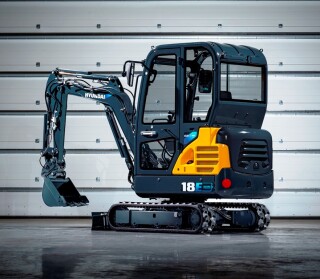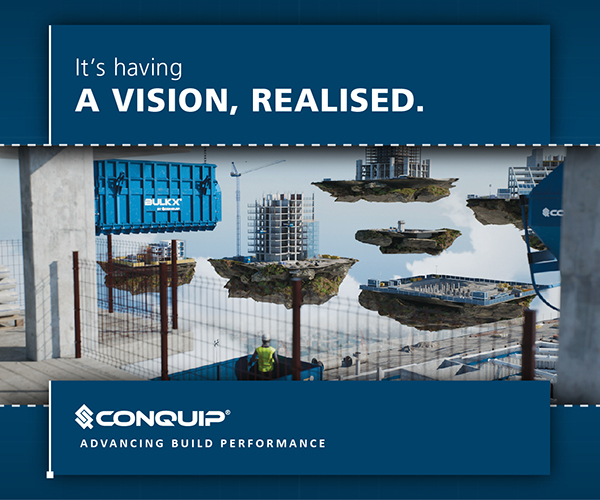Hyundai is this week exhibiting the HW155H concept wheeled excavator at the Bauma trade fair in Munich. This machine is powered by a hydrogen fuel cell mounted in the rear of the upperstructure.
Hyundai Construction Equipment has been developing a hydrogen fuel cell-powered driveline since 2020, when it signed a memorandum of understanding with Hyundai Motors and with specialist division Hyundai Mobis, at its Mabuk Research Centre in Yongin-si, Gyeonggi-do. Together, the three companies have committed to develop hydrogen fuel cells to power forklifts and medium/large excavators over the coming years.
This fuel cell technology is already in use in the Hyundai Nexo passenger car, which uses Hyundai Motors’ second-generation fuel cell – smaller, lighter and stronger than the original seen in the ix35 car. The Nexo boasts a fuel consumption of 0.95kg of H2 per 100km driven, providing the Nexo with a driving range of up to 666km (WLTP), better than any other fuel cell powered car, Hyundai says. Yet, refuelling takes just minutes, rather than the hours needed to recharge a full battery electric vehicle.
Hyundai has a horse in the battery-power race too, for smaller machines. It is showing the 18E concept electric mini excavator a Bauma this week, based on its Robex series. The machine is powered by a 20.7kWh battery pack that delivers enough charge for a full day’s operation in normal use. The recharging time is 5.6 hours when using a standard 220V site supply, Hyundai says.
An inverter feeds the 18E’s 13kW electric motor, which offers a peak power of 27kW. This in turn drives the machine’s hydraulic pumps in the same way as a conventional 1.8-tonne diesel model, converting the mechanical energy in the electric motor into mechanical energy from the hydraulic circuit. The excavator boasts a bucket breakout force of 15.1kNm with a 0.04 m3 bucket and a dipper arm tear-out force of 9.4kN.
“There is currently a strong trend towards electrically-powered machines that cannot be ignored,” said Gert Peeters, product manager at Hyundai Construction Equipment Europe.


He said that Hyundai was planning to bring several electric machines to market in the near future but they will be mainly smaller machines, such as mini excavators.
For larger machines, it sees hydrogen as the way to go.
“While great progress has already been made in the development of electric vehicle technology, there is a risk that we overlook hydrogen as a practical, immediate solution to reduce emissions and improve air quality,” Peeters said.
“Our projections show that fuel-powered vehicles will be more cost-effective than battery-electric or diesel-powered vehicles in the future. We at Hyundai Construction Equipment are convinced that hydrogen will be at the forefront of renewable energies in the long term. We want to exploit this potential and make it available to users in practice-oriented solutions.”
Got a story? Email news@theconstructionindex.co.uk


